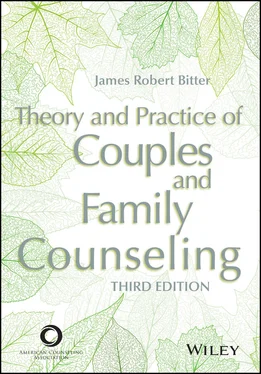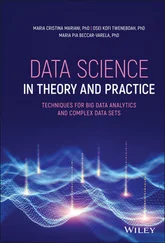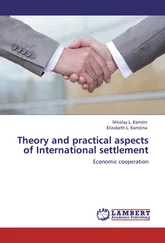James Robert Bitter - Theory and Practice of Couples and Family Counseling
Здесь есть возможность читать онлайн «James Robert Bitter - Theory and Practice of Couples and Family Counseling» — ознакомительный отрывок электронной книги совершенно бесплатно, а после прочтения отрывка купить полную версию. В некоторых случаях можно слушать аудио, скачать через торрент в формате fb2 и присутствует краткое содержание. Жанр: unrecognised, на английском языке. Описание произведения, (предисловие) а так же отзывы посетителей доступны на портале библиотеки ЛибКат.
- Название:Theory and Practice of Couples and Family Counseling
- Автор:
- Жанр:
- Год:неизвестен
- ISBN:нет данных
- Рейтинг книги:5 / 5. Голосов: 1
-
Избранное:Добавить в избранное
- Отзывы:
-
Ваша оценка:
- 100
- 1
- 2
- 3
- 4
- 5
Theory and Practice of Couples and Family Counseling: краткое содержание, описание и аннотация
Предлагаем к чтению аннотацию, описание, краткое содержание или предисловие (зависит от того, что написал сам автор книги «Theory and Practice of Couples and Family Counseling»). Если вы не нашли необходимую информацию о книге — напишите в комментариях, мы постараемся отыскать её.
Theory and Practice of Couples and Family Counseling — читать онлайн ознакомительный отрывок
Ниже представлен текст книги, разбитый по страницам. Система сохранения места последней прочитанной страницы, позволяет с удобством читать онлайн бесплатно книгу «Theory and Practice of Couples and Family Counseling», без необходимости каждый раз заново искать на чём Вы остановились. Поставьте закладку, и сможете в любой момент перейти на страницу, на которой закончили чтение.
Интервал:
Закладка:
Whereas principle ethics focuses on actions and choices based on predetermined values (Corey et al., 2019), virtue ethics focuses on the character traits of individuals or the profession (Kleist & White, 1997). Principle ethics asks, “What shall be done?” Virtue ethics asks, “What kind of person shall the family practitioner be?” What do you think? Is it possible that your ethical behavior as an emergent family counselor or therapist is more about personal moral being than a mere understanding and application of a set of ethical principles?
There are multiple positions on virtue ethics just as there are on principle ethics. Jordon and Meara (1990) defined virtue as “nurtured habits grown mature in the context of a formative community and a shared set of purposes and assumptions” (p. 110). Virtue in this sense is not innate: It is learned. Although principle ethics can be taught, it is not as easy to teach integrity, courage, and humility. And if these are important virtues to have, how does one measure them? Virtue ethics involves “making ethical judgments based on the development and implementation of professional virtues associated with [professional] practice” (Bitter, 2014, p. 524). Advocates of virtue ethics argue that family practitioners should not merely seek the safety of ethical behavior, as in principle ethics, but should aspire to an ethical ideal. At the beginning of this chapter, we considered some of the virtues that might serve as ethical ideals in couples and family practice. Not only must we be individually and collectively clear about those characteristics, we must also be mindful of the virtue ethics reflected in the families we serve (Gamino & Ritter, 2009). Cohen and Cohen (1999) and Vasquez (1996) have long argued for ethical decision-making based on principle ethics but grounded in a foundation of virtue ethics. For Vasquez, virtue ethics can facilitate multicultural practice in the same way that boundary setting enhances flexibility.
For example, you are seeing a Native American family in counseling at a local agency that offers free counseling for those families with limited means. You have successfully guided the family to a place at which they would like to terminate the counseling relationship. At your final session, the family presents you with a blan ket that they have made together. To them, the blanket represents a thank you for the services provided. Typically great caution is suggested in all professional codes when considering accepting a gift or bartering for therapeutic services. Vasquez (1996) would suggest that the virtue of respect may contribute to understanding that the blanket is offered as a cultural means of expressing appreciation. Emphasis on the character of the individual and the profession provided by virtue ethics adds a sense of personal responsibility to the more external guidelines of principle ethics.
That said, virtue ethics has plenty of detractors. Like principle ethics, virtue ethics can be challenged for their cultural relevance. Bersoff (1996) acknowledged the social construction and social embeddedness of virtues and community wisdom, the very foundation of a virtue ethics perspective. Think of the virtues that you hold dear. Where did they come from? Do you have any idea of the history of these virtues in your own cultures? The very nature of multiple cultures means that there will be diverse perspectives on what is defined as virtue and virtuous behavior.
The teachability of virtue ethics is an additional dilemma (Bersoff, 1996; Kitchener, 1996). Can the virtues of the helping professions be taught within a 2- or 3-year program? What about the nurtured habits that you developed within your family of origin? What if some values nurtured in you from the time you were an infant do not fit well with the virtues of the helping professions? Would you be willing to give up values you have held all your life and adopt the values supported by your profession? What would that mean for you within your own family life? If professionally congruent virtues cannot be taught and learned during a graduate program, those programs may have to adopt the difficult position of choosing candidates who already possess professionally desirable attributes and values (Bersoff, 1996). What are the problems that accompany this idea? The problems would be even more complex if members of a profession had to agree on a set of professional virtues and then create a means of assessing candidates during the interview process. Impossible, you say! Maybe, but some preparation programs are currently attempting to do exactly that.
Participatory Ethics
Another perspective on ethics is grounded in postmodern philosophy, thought, and sensibilities: It is called participatory ethics. Postmodernism is based on a multiplicity of realities and truths; it values people’s meaning-making processes as they create narratives of experience, and it examines dominant cultures that impede the self-agency of people who have only marginal participation in society. Feminism, social constructionism, and multiculturalism have all embraced this shift away from the modern to the postmodern. Participatory ethics invites families to be cocontributors to the ethical decision-making processes in family practice (Rave & Larsen, 1995). Postmodernists have critiqued family counseling and therapies based in modernist philosophy as attempts to colonize clients by viewing family practitioners as the keepers of knowledge and the people responsible for any decision related to counseling or therapy (see Hoffman, 1985). Participatory ethics seeks to include and value the knowledge brought to counseling or therapy by families. Client feedback on the processes of family practice is encouraged. That is, client input is valued as expert in relation to how individuals, couples, and families experience their own lives, and practitioner expertness is related to leadership of the therapeutic process.
For our family with the 14-year-old child, how might their stories of lived experience be prized? How, if at all, has the dominant discourse in which this family is situated oppressed their self-agency? Their self-determination? A family practitioner adopting participatory ethics might invite and emphasize the family’s experience and meaning-making processes in interactions with the dominant culture or the stories told by the court system about child neglect and how such stories influence the preferred view of the family. As participatory ethics attends to the marginalized, the voice of the 14-year-old child might be encouraged and amplified. The family counselor could work with the parents to help them imagine themselves through the eyes of their child, to imagine what the experience of the situation might be like and what the child’s preferred choices might be. The postmodern shift to participatory ethics can be quite powerful: In this model, the family practitioner’s position of power is counterbalanced by honoring the family’s own power in their process of living.
We have introduced three perspectives on ethics: principle, virtue, and participatory ethics. Take a moment to reflect on the essence of each of these perspectives and your emotional reaction to them. With principle ethics, you have externally derived guidelines based on at least six principles to guide your professional actions. Virtue ethics calls on you and the helping professions to examine the character traits essential to family practice and how these characteristics may impact ethical processes. Last, participatory ethics takes you to the space between you and your clients, to the relationship in which clinical decisions are coconstructed and negotiated with families. What are the potential positives in each that you see? What are the problems? What does your gut tell you about your thoughts and feelings about each? Now look at your answers to these questions. What do they say about you and your work with families? If you are not satisfied by one and only one perspective on ethics, then which blend fits for you? How would you integrate that blend into a functional model? Continue to ponder such questions as we now move through various models of decision-making.
Читать дальшеИнтервал:
Закладка:
Похожие книги на «Theory and Practice of Couples and Family Counseling»
Представляем Вашему вниманию похожие книги на «Theory and Practice of Couples and Family Counseling» списком для выбора. Мы отобрали схожую по названию и смыслу литературу в надежде предоставить читателям больше вариантов отыскать новые, интересные, ещё непрочитанные произведения.
Обсуждение, отзывы о книге «Theory and Practice of Couples and Family Counseling» и просто собственные мнения читателей. Оставьте ваши комментарии, напишите, что Вы думаете о произведении, его смысле или главных героях. Укажите что конкретно понравилось, а что нет, и почему Вы так считаете.












